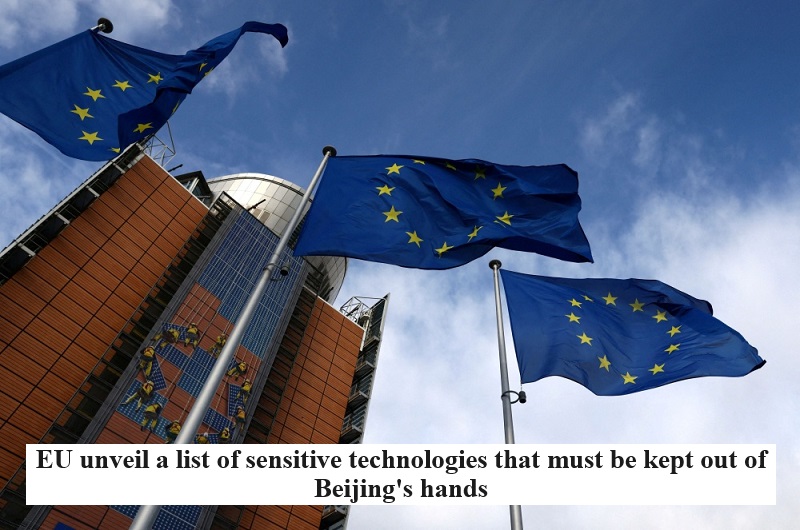
The European Union (EU) is poised to outline its strategy on Tuesday for countering China’s assertive trade practices, which will include the release of a catalogue of sensitive technologies that need to be safeguarded from Beijing’s reach.
Brussels is in the process of constructing a trade toolkit designed to shield the EU from actions taken by rival nations, which includes a mechanism aimed at penalizing countries attempting to exert pressure on one of the EU’s member states.
The European Commission will issue a list of vital technologies that it deems should not be readily accessible to nations where there are concerns that such access could jeopardize the EU’s security, interests, or human rights.
Furthermore, the European Parliament is expected to grant its final approval on Tuesday to a framework that enables the EU to impose tariffs, limit investment, and restrict access to public procurement for countries engaging in economic coercion.
This move is a response to a dispute with China over trade restrictions imposed on the EU member state Lithuania after it deepened its ties with Taiwan.
Additionally, members of the European Parliament (MEPs) will question the commission on Tuesday regarding the EU’s relationship with China following a visit by Trade Commissioner Valdis Dombrovskis to China last month.
While the EU maintains that it seeks to maintain dialogue with Beijing, it has intensified its efforts to mitigate critical trade with China. This forms part of a “de-risking” strategy, rather than complete “decoupling” from China, as championed by European Commission President Ursula von der Leyen.
Von der Leyen has repeatedly stressed the importance of Europe increasing its domestic production and collaborating with like-minded nations to ensure “economic security,” a term that has gained prominence since Russia’s invasion of Ukraine last year.
In the wake of Moscow’s invasion, the EU was compelled to swiftly identify new sources of energy due to its overreliance on Russian oil and gas.
The list of key technologies could encompass quantum computing, advanced semiconductor technology, and artificial intelligence. Von der Leyen previously stated in June that the EU was considering a “limited, small set of cutting-edge technologies” to ensure that they do not bolster the military capabilities of certain countries of concern.
EU officials have previously voiced concerns over Europe’s lack of a systematic method for evaluating which technology exports could be detrimental to the bloc.
While not explicitly named, the measures are clearly targeted at China. Additionally, the European Commission is developing a proposal on foreign investment that could curtail overseas financing by European firms.

Post Your Comments